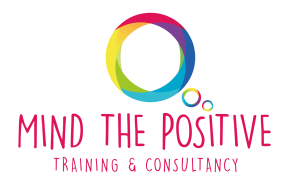Understanding Leaders Through Followers’ Eyes
From the earliest studies until today, major concern in leadership has been leaders’ figure, characteristics, or their influential role. However little is said about the role of followers. A leader is a leader, only through the acceptance of authority and influence by his/her followers. That is what law of influence –as John C. Maxwell says, “If you can’t influence people, then they will not follow you. And if people won’t follow, you are not a leader. ” Analyzing leaders alone would provide scarce understanding; therefore we ought to consider leaders together with their followers, and their influence on each other. Followers are at key position in a leader’s influential role; where leaders and followers are inseparable parts of a single entity –i.e. manager and team of subordinate, political influencer and voters/supporters, column writer and readers, classroom teacher and students, etc. Leaders being aware of their followers’ characteristics, knowing who they are, and what makes them as followers, will make themselves far greater leaders. I, with a reversed perspective, will attempt to bring new understanding and awareness, by providing leaders a self-reflection through their followers, and remind that every leader, while being followed, is as well a follower, to other leaders or him/herself.
In my previous article –Outstanding Leadership Through Positive Development Approach, I introduced the importance of positive development approach for outstanding leadership; however did not explain how. So, why not explore it now… To begin with, any development approach, whether positive or not, begins with self-awareness, and leads on with self-management. Let aside leaders’ development, these are pivotal aspects for individual’s healthy and goal-directed functioning.
I now invite you to have a fresh glance at yourself, as a leader. Have a look at your leadership style… Observe your followers; who they are, their characteristics –such as their unique skills, abilities, knowledge and experience. Just think, what is the particular context that brings you together? It may be part of a million-dollar project at work… a social welfare project within a non-governmental organization… or an empowerment program as part of a social responsibility volunteering… perhaps as part of a self-managed team, where all team members are both leaders and followers.
This means that while being a leader with followers, you may as well be a follower –even the follower of your own leadership! It may sound weird… Well, who do you think is the single person that you are responsible or in charge of? You! You are the unique follower of your own leadership. It’s quite unusual to consider yourself in such a reversed role! Looking at yourself this way may be a valuable opportunity to explore about yourself as a leader, as the unique follower of your own leadership. The question is how… Please think about the steps you take to create leaders out of your followers. With your best possible intention, you help them strive and struggle to find out who they are, what they are, what they want to be, and what they wish to do in life. For that particular purpose, you encourage them for training and development, guide them for goal achievement, and you reward in success, criticize in failure, and provide help at setbacks. Aren’t these the exact steps you do for yourself? You actually lead yourself! Therefore, when it comes to leader-follower relationship, you are no different than your followers. In that sense, you and your followers are inseparable parts, where you may be the perfect personal example.
“The most powerful leadership tool you have is your own personal example.”
– John Wooden
Even though we perceive and ground ourselves in our current role –as a leader or a follower, we actually take both roles in different contexts, times and circumstances. For example, a doctor at certain point in life becomes a patient; a sales person becomes customer, and any leader is as well a follower of another leader… A corporate CEO, let’s say, will let go his leader’s role in front of a doctor! Now, looking from this perspective, I invite you to explore on the kind of a follower you are, and would like to be… placing yourself within various contexts, times, and circumstances, where you are actually at the role of a leader, follower, or even a simple observer who has no particular influence. Your explorations will help you better know and understand yourself; find out the drives you struggle for; be aware of the risks you take; realize what you do and what you dare for…
“Real leaders must be ready to sacrifice all for the freedom of their people.”
– Nelson Mandela
Part of this exploration, serves to understand how much you are ready to dare, as a leader or a follower, for your own sake and others. Because great leaders are the ones who risk themselves for the sake of others… Their well-being, prosperity, freedom, rights, life, etc. Leaders must be willing to give up more than the people they lead; and even give up for the people they lead. Leaders at front, ahead of his/her people, do not only open the pathway for followers, but they risk and sacrifice themselves for their people, against a challenging or dire situation. Emotionally intelligent followers see this; and that awareness creates a higher level of loyalty in followers.
“The way you treat yourself sets the standard for others.”
– Sonya Friedman.
So, what’s in here to take? We need to accept that we are what our followers are. We follow each other because of our shared qualities. We associate ourselves and connect with each other through our common characteristics. We mirror, influence, and lead each other through those shared qualities. Despite the designated context that brings us together, we are connected and loyal to each other because of our common values, shared beliefs, and motivation. That’s what makes leaders and followers loyal to one another. For this particular reason, you ought to “treat others the same way you want them to treat you.” (Luke 6:31). Now, within this perspective, I invite you to be mindful of your own personal qualities, both as a leader and a follower; observe your style in leadership and followership; think of practicing more positive attitude and behavior –such as compassion, kindness, and empathy, towards yourself and others. This may bring you to a greater level of leadership –that is an outstanding leadership!
And, finally, emphasising that outstanding leadership (and followership) is through self-awareness and self-management, I’d like to conclude with the Chinese Taoist philosopher Lao Tzu’s wise words, “Knowing others is intelligence; knowing yourself is true wisdom. Mastering others is strength; mastering yourself is true power.”


